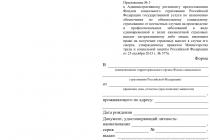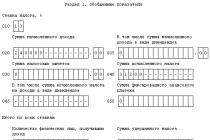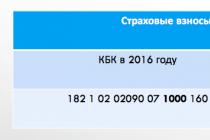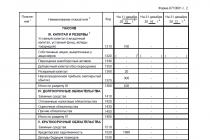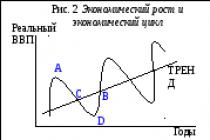The deposit agreement is a real, unilateral and onerous agreement. It consists in the moment when the depositor transfers the amount of the deposit to the bank. In the case when a citizen acts as a depositor, such an agreement is recognized as public. A deposit agreement concluded by legal entities does not have the property of publicity.
The parties to the agreement are the bank and the depositor.
The bank must have the right to attract Money into deposits in accordance with the license he received. This right arises for banks after 2 years after their registration. Non-banking credit organizations can attract funds for deposits only legal entities(Article 36 of the Banking Law and Chapter 44 of the Civil Code).
Any legal or natural person can be a contributor.
Essential conditions The terms of the contract are: subject matter, interest on deposits, cost banking services, deadlines for their implementation, property liability for violation of the contract, the procedure for terminating it (see Article 30 of the Law on Banks and banking).
By virtue of Article 840 of the Civil Code, the return of deposits of citizens by the bank is ensured by compulsory insurance of deposits carried out in accordance with the law, and in statutory cases and in other ways. Methods for the bank to ensure the return of deposits of legal entities are determined by the agreement bank deposit. It follows that the provision by the bank of a deposit of legal entities is one of the essential terms of the contract.
The subject of the agreement is money (deposit in rubles, foreign currency). The depositor can transfer money in cash or in a non-cash form.
The Bank acquires the right of ownership to those funds that are placed on its deposit. The depositor loses the right of ownership and acquires the right to claim against the bank.
Interest is the price of a loan given by a depositor to a bank. The bank is not entitled to unilaterally change interest rates on deposits, except as otherwise provided federal law or an agreement with a depositor (Article 29 of the Law on Banks, clause 2 of Article 838 of the Civil Code).
Interest is accrued from the day following the day the deposit amount is received by the bank, until the day it is returned to the depositor, inclusive, and if it is debited from the depositor's account for other reasons, until the day of debiting, inclusive. The frequency of interest payments at the request of the depositor is quarterly, unless otherwise established by agreement of the parties. Unclaimed interest increases the amount of the deposit, and by the time the deposit is closed, they are paid in full.
The Bank is also not entitled to unilaterally shorten the term of the agreement, increase or establish a commission fee for operations.
Investments are divided into two main types:
a) on the terms of issuing a deposit on demand (demand deposit);
b) on the terms of the return of the deposit after the expiration of the term specified in the agreement (term deposit).
Regardless of the type of deposit, the bank is obliged to issue the deposit amount or part of it at the first request of the citizen depositor. Deposits made by legal entities are returned only on the conditions of return stipulated by the agreement.
There may be conditional deposits, payments on which are made in the event of the occurrence of certain circumstances specified in the agreement. There are also various types of premium (winning) deposits, currency deposits and other combinations of these types of deposits.
In case of acceptance of a contribution from a citizen by a person who does not have the right to do so, or in violation of the procedure established by law or the rules of the Central Bank, the depositor may demand the immediate return of the deposit amount, as well as the payment of interest on it, provided for in Art. 395 GK. The violator may be charged damages in excess of the amount of interest.
The depositor has the right not only to make a deposit himself, but also, unless otherwise provided by the deposit agreement, to receive funds to his account received from third parties who indicated the data on the depositor's account.
The Civil Code also provides for the possibility of a deposit to a third party, when the bank accepts the amount received for one person who does not have a deposit from another. In the latter case, the third party, and not the person who entered into the agreement, is considered the depositor. Such a person acquires his rights from the moment he submits the first claim to the bank based on the rights of the depositor, or he expresses to the bank his intention to use the deposit in his name. Until such an intention is expressed, the person who has entered into a bank deposit agreement may exercise these rights in relation to the funds deposited by him.
The bank deposit agreement must be concluded in a simple written form. Failure to comply with the written form entails the invalidity of the contract. In confirmation of the conclusion of the contract, a savings book, savings and deposit certificates, or another document that meets the requirements of the law is issued, banking rules and business practices.
The book is issued in case of opening an account, which reflects the movement of the depositor's funds2. A savings or deposit certificate3 is issued when an account is not opened.
Legal definition - clause 1 of article 834
Under a bank deposit (deposit) agreement, one party (bank), which has accepted the amount of money (deposit) received from the other party (depositor) or received for it, undertakes to return the deposit amount and pay interest on it on the terms and in the manner prescribed by the agreement.
The definition is traditional for the domestic legal order.
It should be noted that the second legal name of this treaty is DEPOSIT. "Deposit" is derived from the Latin word "to store". In the 19th century, money was deposited in the bank, and the banks kept it. There was clean storage. But then the banks realized that the amount of funds that they have is always about the same, and, therefore, first behind the scenes, and then openly began to use the stored money. So deposit for storage has become a contribution for use.
Deposit today does not mean storage. The approach in the doctrine that a bank deposit agreement is a kind of storage is not correct.
A deposit is a loan agreement. The deposit is qualified type of loan. The formulation of the rules on bank deposits as a special agreement is predetermined by the specifics of the subjects.
The peculiarity of the deposit is that professional entrepreneur borrows from non-professional non-entrepreneur. Hence, the protection of depositors, who are the weakest side, is needed.
As part of the deposit only one duty – return the money. The contributor is creditor. And the lender is always weak side because he can only believe. That is, double protection of the depositor is needed here: firstly, because he is not a professional, and secondly, because he is a creditor. Basically, the rights of the depositor are protected by imperative norms.
Deposit characteristic
At the time of conclusion – real contract, despite the fact that it says "obliges". It says "accepted the amount received." That is, for the obligation to return the money to arise, it is necessary for the day to arrive at the debtor.
From the point of view of the distribution of rights and obligations – unilateral contract. The transfer of funds to the deposit is not the obligation of the depositor, but only the moment the contract is concluded.
From the point of view of the presence of a counter property provision – compensated contract. Compensation is one of the elements of depositor protection.
There is a mismatch here. The loan can be anything, and the deposit - only reimbursable.
The provisions of paragraph 2 of Article 834 - a deposit is public agreement, if the depositor is a citizen.
Regarding the elements of the treaty
Parties – bank and contributor.
Banks and other credit organizations can act as a bank. Restrictions in the subject composition are related to the fact that accepting deposits is a banking activity that requires licenses.
Moreover, taking into account the negative experience of past years, the legislator tried to attend to the regulation of the situation when other persons attract funds to the deposit. For example, MMM. Apparently, so that this situation does not happen again, the Civil Code also inserts its 5 kopecks. Article 835 specifies the consequences of attracting funds to deposits by persons who do not have the appropriate right to do so. There, these consequences are differentiated depending on from whom the funds are raised. If the depositor is a legal entity, then this is a void contract. If the depositor is an individual, then the losses are in excess of the amount of the deposit.
Contributor– any subject of the GP.
The entity participating on the side of the depositor has no influence on the qualification of the agreement. It should be noted that for all the indifference of the figure of the contributor to the qualification of the contract, this figure is not indifferent from the point of view of applying the rules to such an agreement. There are special rules dedicated to the deposit with the participation of citizens. If a citizen, for example, then the deposit is a public contract. If a legal entity, then the deposit is a non-public contract.
Speaking about the subjects, it should be noted that the legal definition itself implies the possibility of concluding a deposit according to the contract model in favor of a third party (“received from ... or received for ...”).
This phenomenon is regulated by Article 842 of the Civil Code of the Russian Federation.
Subject.
We have already said that the deposit is a loan agreement. Moreover, the subject here is limited by law: cash (cash and non-cash).
Actually, money, as a general rule, exhausts the subject of a bank deposit agreement. There is one clarification. The fact is that the peculiarity of the legal status of depositors-citizens is the ability to make payments using the money in the deposit. Those. a citizen depositor can tell the bank: pay utility bills with this money in the deposit. In short, a deposit can be made by making a settlement. That is, in addition to cash, for a deposit with the participation of a citizen depositor, the subject may also include settlement services. However, calculations are an optional subject that does not always arise.
Concerning prices, then the price is interest.
Article 838 of the Civil Code of the Russian Federation regulates the relevant issue. The price is not an essential condition. There is a reference norm (clause 1 of article 809). The amount of interest may be established by the agreement, but if it is not established, it will be determined according to the rules of clause 1 of Article 809.
Regarding an element like term, it must be borne in mind that the term acts as a criterion for differentiating all bank deposit agreements. Depending on the term, deposits are divided into term deposit agreements and demand deposit agreements.
In demand deposits, the depositor may at any time demand back the amount of the deposit. In term deposit agreements, the amount is returned to the depositor after the expiration of the specified period.
Although, one of the ways to ensure the interests of the depositor is to guarantee him the opportunity to claim the deposit at any time. Those. and in the term deposit agreement, the depositor may demand that the deposit be issued to him at any time. This is due to the need to protect the interests of the depositor.
What then is the fundamental difference between these types of deposits? In percents. In case of early return of a deposit in a term deposit, the interest is lower than the interest in the return of a deposit with a demand deposit.
This norm is dispositive. The agreement may provide otherwise. But unless otherwise established, then we have such a situation. For example, on demand deposits, the rate is 0.01% per month. For term deposits, the rate is 1% per month. The depositor concludes a term deposit agreement for 1 year. After 1 year, he has the right to demand the amount of the deposit + 12%. If the depositor arrives ahead of time, then he has the right to claim the amount of the deposit and interest on the demand deposit.
In the draft Civil Code for savings certificates (which are only for legal entities), it is planned to introduce the possibility of settling the contract with the impossibility of early return of the deposit amount.
Finally, with regard to forms.
The question of the form is regulated by Article 836 of the Civil Code of the Russian Federation. Written form. Form is a constitutive element. Failure to comply with the written form entails the nullity of the contract. There are no written options in Article 836. We look at article 36 of the law on banks and banking, which says that the contract is drawn up in the form of a single document signed by the parties in two copies.
The Civil Code does not contain any special requirements, and the Civil Code has greater legal force than the law on banks, therefore, the written form can be any provided for in the Civil Code.
Paragraph 2, paragraph 1 of Article 836 is a quasi-written form. It says what is recognized as compliance with the written form.
Because the deposit is unilateral treaty, the entire content of the deposit is exhausted by the obligations of the bank.
The first duty is the bank is obliged to issue a deposit.
There is a certain regulation associated with early return. We have already considered it.
The second duty is The bank is required to pay interest.
The amount of interest - the conditions for the amount are established by agreement of the parties. If not specified, Art. 809 applies.
As for the procedure for paying interest, this condition is also established by agreement of the parties, and is also not essential. Unless otherwise provided by the agreement, interest must be paid quarterly.
In order to protect the interests of depositors, the legislator says that if the depositor does not receive interest, then capitalization of interest occurs: unpaid interest is added to the deposit amount and interest is charged on them. This norm is dispositive.
Of particular interest is the issue related to the change in the size of interest. Obviously, the amount of interest can be changed by agreement of the parties.
The fact is that, taking care of the interests of the depositor, the legislator must also ensure the interests of the bank. There is the right of the bank to unilaterally change (read - reduce) the amount of interest.
The regulation of this issue is differentiated depending on the type of deposits. With a demand deposit, the right of the bank to change the interest is general rule. Other may be provided by the contract. With regard to term deposits, here the regulation is built in exactly the opposite way. The regulation has internal differentiation depending on the figure of the contributor. If the investor is a legal entity, then the bank may change the interest, if it is provided for by law or the agreement.
If, on a term deposit, the depositor is citizen, the bank has the right to change the amount of interest only if it is provided for by law.
It turns out that in the situation with a citizen-depositor, the regulation of such issues in the contract will not lead to any real result. True, the history of the state shows that only rules are established at the level of the Civil Code, and then the possibility of circumventing them is created.
In 1999, the Constitutional Court even intervened. What was the situation? After the Civil Code, where it is written that the bank changes interest only if it is provided for by law, then they adopted a law on banks and banking, and they wrote there: the bank changes interest if it is provided by law or contract. Based on this, banks included this option in all contracts and changed the interest.
The Constitutional Court said that such an interpretation of the law does not comply with the Constitution.
Finally, to complete the question of the bank's responsibilities, two more responsibilities need to be specified: the obligation of the bank to credit the funds received from the depositor or other persons to the deposit(dispositive rule; general rule of replenished deposits), an obligation when the depositor is a citizen, comply with the order of the depositor-citizen on the transfer of funds.
Financial institutions, in particular banks, on the basis of a license, have the right to attract funds from individuals and legal entities for deposits. The bank deposit agreement is intended to establish legal relations between the parties, each of which wants to make a profit.
This document should be distinguished from others on the basis of which finance can be attracted. According to the deposit agreement, one party gives finances, and the other accepts, undertakes to save and return with interest in the prescribed manner.
Dear readers! The article talks about typical ways to solve legal issues, but each case is individual. If you want to know how solve exactly your problem- contact a consultant:
APPLICATIONS AND CALLS ARE ACCEPTED 24/7 and 7 days a week.
It's fast and IS FREE!
Different deposits differ from each other, all the nuances of saving and returning the funds received are stipulated in the agreements governing the relationship between the parties. The main difference between the contract individuals is the presence of an item to ensure the return of the deposit upon the occurrence insured event due to the fact that it is compulsory insurance from the Federal Fund.
The return of the deposit to a legal entity is also stipulated in the contract, but at the same time the depositor is informed about how the return will be carried out.
What is it
A bank deposit agreement is an official document on the basis of which a depositor places finances on the account of a credit institution that come from him personally or in his name from a third party. The document is drawn up on certain period, after which the funds are returned.
Eligible fees may, under the terms of the contract, be repaid at the end of the term or throughout the period. The amount placed on the account is the subject of the agreement. The actual content of the legal document can be characterized as a unilateral binding agreement.
The depositor has the right to claim, and the institution undertakes to return the finances with remuneration, which starts accruing from the moment the transaction is concluded and ends on the day preceding the end of the deposit.
Funds may be held in the national or foreign currency, as well as in several.
Articles Civil Code RF from 834 to 844 regulates the content of bank deposit agreements
Main provisions
Each deposit is placed on certain conditions. For their implementation, the document displays the rights and obligations of the parties, depending on the type of deposit placed.
Legal basis
The legal nature of the contract is the provision financial services to the depositor-consumer by the executing bank, therefore the document is subject to the Consumer Protection Law (1996).
The agreement establishes relations on the basis of legal documents:
- Decree No. 7 (1994-1995), dealing with consumer protection issues in court;
- Order of the SAC RF No. 160 (1998), which clarifies issues related to the Consumer Rights Protection Law;
- Federal Law No. 2, which considers amendments and additions to the Law on Consumer Rights and the Civil Code in relation to administrative offenses;
- , where it is indicated that the standard deposit agreement is public, so the bank cannot refuse anyone who wants to make a deposit;
- , which states that the document can be considered as a contract of accession of a public nature with the conditions set out in a standard form;
- Resolutions of the Constitutional Court No. 4-P (1999), which states that depositors cannot influence the content of the contract, therefore they are a weak party and must be protected;
- , considering the possibility of an early return of funds to a legal entity engaged in entrepreneurial activity, and the impossibility of returning finances if the organization is non-profit.
The natural accompaniment of the concluded deposit agreement is the account to which the depositor transfers funds. imposes restrictions on legal entities, indicating that they do not have the right to commit settlement operations from a deposit.
species variations
Deposit agreements can be considered depending on the termination date:
| Poste restante | On the basis of such documents, the entire amount or part of it, together with savings, can be returned to the depositor on demand, i.e. the term of the contract is not limited to any date. |
| They have the right to be terminated only within a predetermined period. But the client has the opportunity to withdraw the term deposit ahead of time, in which case the accumulative interest is reduced and recalculated. But legal entities do not have the right to early termination of the contract. At the same time fixed-term contracts are divided into types:
|
There are also contracts:
- with a fixed or "floating" interest rate;
- with the possibility of changing the initial amount (replenishment / partial withdrawal of funds) or without it.
The contract format can be in the form of:
- a written document certified by the parties, when the first copy is given to the client, and the second remains in the bank;
- passbook, when transactions are possible only after presentation by the depositor;
- deposit certificate.
He is security, can be bearer and nominal. It indicates the size of the investment and the rights of the depositor, the validity period, accumulative rate. Typically, a money certificate is issued for 1 year legal entities and 3 individuals
Basic conditions
The contract prescribes the necessary conditions for the placement and savings of funds, the procedure for returning and much more.
For example, the most significant are:
- the currency in which the deposit is made;
- deposit amount;
- the start and end date of the contract;
- the interest rate at which the client will be charged a fee for the fact that the bank uses his money;
- procedure for payment of remuneration;
- how the funds will be returned to the depositor, through the cash desk of the bank, to his account or to plastic;
- personal data of the depositor, according to the presented passport;
- in case of opening a deposit for a third party, his data.
Additional points include:
- deposit replenishment options and partial withdrawal;
- the size of the minimum balance;
- conditions for early termination, if the contract is urgent;
- how the return of funds will be ensured in the event of an insured event;
- the client's identity document.
The contract must specify how interest will be paid, every month, quarter, year or at the end of the term. According to some agreements, it can be carried out when the interest accrued every month is added to the main deposit, thereby increasing it.
The next time the accrual is made for an increased amount. In this case, the deposit and interest are accumulated in one account; when simple interest is calculated, they are stored in a separate account. If a minimum balance is provided, then you can partially withdraw, but only up to this threshold, then interest can be charged on the deposit.
The text of the agreement primarily depends on the type of deposit, but the common data for all legal documents governing the relationship of the parties is identification.
The form of a standard deposit agreement provides for the following main points:
| Subject of the contract | It is the amount of investment, the amount of accumulative interest, the procedure for accepting and returning funds, accruing and transferring income. |
| Obligations of a credit institution |
|
| Client rights |
|
| Client Responsibilities |
|
| Resolution of controversial issues |
|
| Possibility of termination | The contract may be terminated:
|
The question of decline interest rate subject to special consideration. Some legislative acts they say that credit institution unilaterally, they are not entitled to do this, especially if it is a fixed-term bank deposit agreement in, for example. According to this, it is forbidden to include in the contract a clause on reducing the rate in case of inflation or others.
Details of drafting deposit agreements with banks
Important points that relate to the drafting of deposit agreements must be foreseen at the stage of concluding and terminating documents. The main role belongs to the parties involved in legal relations.
How to conclude
When concluding an agreement, the bank opens a deposit account for the client, legal document, regulating the relations of the parties, is signed by the depositor and the bank represented by an authorized employee.
The conclusion of the contract consists of the following stages:
- study by a potential contributor of tariffs in relation to specific programs;
- informing the employee of the depositor about his rights and the current legislation;
- signing an agreement on the terms that the depositor chooses from those offered;
- depositing finances by the client through the cash desk or by transferring from account to account;
- transfer to the client of the first copy of the agreement, if the conclusion of relations takes place in writing, in other cases, a passbook or a certificate.
Recently, many banks offer potential clients make a deposit through Internet banking, without the need to visit a branch.

To make an online deposit, a depositor just needs to connect to Internet banking, fill in the necessary data about himself and transfer funds to the bank account from his card
Parties
The Banking Law states that a bank needs a license to attract depositors' funds, but it can only obtain one if certain conditions are met. They should talk about its stability, ability to meet the requirements, established by the Bank Russia.
The bank should not have debts to the budget, be an organized structure, carry out its activities for 2 years and others. The law does not allow non-banking credit institutions attract investors' funds.
Sample standard contract, which the parties conclude, may contain the possibility of replacing one of the parties. This happens on the basis of the rights of assignment of a claim or when transferring a debt, when the bank is also a new debtor.
If between commercial bank and the investor commits offenses, the rules of Part 1 of the Civil Code of the Russian Federation will be applied to them.
For example, if a deposit from an individual is accepted by an institution that does not have the right to do so, or errors are made during registration, the citizen has the right to demand the immediate return of the deposit with accrued interest and additional compensation for the losses caused. If funds are accepted from a legal entity with the same violations, the concluded agreement will be considered invalid.
The law allows the deposit of funds into the depositor's account by a third party. In this case, the third party will not be able, if he wants, to terminate the deposit agreement without the consent of the depositor.
It is also allowed to open a deposit for a third party, after which it will acquire the rights of a depositor. At the same time, in without fail the data of the citizen or the name of the legal entity in whose favor the contribution is made must be indicated.
If the data is missing, the transaction will be considered void. In this case, the contract, by agreement between the bank and the person who contributed the finance, may be prematurely terminated or changed. But this can be done until the deposit recipient has exercised his rights.
Termination
When a deposit agreement is terminated, the term for which has expired, the depositor has the right to visit the bank branch on the closing day of the document or the next one.
At the request of the client, the contract can be extended on the same terms, if this is stipulated in advance by the document, then the presence of the depositor is not necessary.
The client can also terminate the contract at any time, regardless of whether it is urgent or on demand. Moreover, it is not necessary to inform the bank about the reasons. If the contract is urgent, the interest will be recalculated, and the deposit, together with savings, will be returned to the client.
To terminate the contract early:
- come personally to the office, having a passport and an agreement in your hands;
- file an application for withdrawal of funds;
- get a deposit with interest.
A responsibility
The conclusion of a deposit agreement implies the liability of the party that accepted the funds.
Therefore, the bank, on the basis of the agreement, is obliged:
- insure the client's deposit, fulfilling the requirements of the law on;
- pay interest;
- return the money received along with the savings at the first request of the depositor.
The Bank may violate its obligations, for which it will be subject to appropriate sanctions in the form of a forfeit and others, if:
- fails to ensure the return of the deposit on time (does not insure the deposit);
- will lose the possibility of providing;
- commits violations when concluding a contract;
- will not pay interest and will not return the deposit on time.
In some cases, the bank may lose the opportunity to return the finances to the depositor if it is declared insolvent. Then he goes bankrupt. As a result of liquidation, his property is sold, and the funds are returned to depositors and other creditors.
in a person acting on the basis of , hereinafter referred to as " Bank", on the one hand, and a citizen, passport (series, number, issued) residing at the address, hereinafter referred to as " Contributor”, on the other hand, hereinafter referred to as “ Parties”, have concluded this agreement, hereinafter referred to as the “Agreement”, as follows:1. The Subject of the Agreement
1.1. The depositor transfers rubles to the bank as a deposit on the day of the conclusion of this agreement.
1.2. The term of placement is not set (or set months from the date of conclusion of the agreement, or from the day following the day of the conclusion of the agreement).
1.3. The deposit is opened on the basis prescribed form, passports and making the entire amount of the contribution.
1.4. Interest on the deposit is charged in foreign currency only for the period of placement, at the rate of % per annum.
1.5. Payment on the deposit is made (options: at the end of the deposit, quarterly, monthly, when the deposit is extended for the past period).
1.6. In case of early return of the deposit, interest (options: not charged; interest remains unchanged; interest is paid at the rate of - per annum).
1.7. The interest rate may be changed in accordance with the adopted by the Central Bank of the Russian Federation and other authorized government bodies decisions regulating interest rates on deposits and deposits of citizens.
In this case, the change in the interest rate is made by the Bank from the date of its introduction unilaterally without re-executing the agreement.
1.8. The deposit and interest on it are issued to the Depositor only upon presentation of the agreement (original) and passport.
2. Obligations of the bank
2.1. Accept a deposit and keep the Depositor's funds.
2.2. Make a deposit, issue a confirmation of receipt of money from the Depositor in the amount of rubles.
2.3. To fulfill, within the limits of the funds on the deposit, the written instructions of the Depositor on non-cash payments from the deposit.
2.4. Return the deposit with accrued interest at the first request of the Depositor.
3. Rights of the depositor
3.1. Dispose of the deposit both personally and through his representative for notarized activities.
3.2. Receive income from the deposit in the form of interest or in any other form.
3.3. Make cashless payments.
3.4. To bequeath the entire deposit or its share with accrued interest.
4. Obligations of the contributor
4.1. Transfer money to the Bank in the amount of rubles up to "" year.
4.2. (option) Notify the bank of the extension of the period provided for in clause 1.2, no later than calendar days before its expiration, and within the next five days from the date of notification, draw up an addendum to the agreement on its extension.
4.3. In case of early termination of the agreement, the Depositor must notify the bank in writing in advance.
5. Obligations of the bank
5.1. In case of untimely return of the deposit and interest accrued on it, the Bank pays the Depositor a penalty in the amount of % for each day of delay from the entire amount withheld, starting from the day following the day of the end of the placement period.
6. Forty duration of the contract
6.1. The Agreement comes into force from the date of its signing and is valid until the return of the deposit amount and interest accrued on it to the Depositor.
6.2. (option) Early return of the deposit and interest accrued on it is not allowed or is made by the Bank on the basis of a written notice from the Depositor.
6.3. Amendments and additions to the contract are made by agreement of the parties and are formalized as an addendum to it.
7. Procedure for resolving disputes
7.1. If any questions arise (including the loss of the original agreement or passport), the Depositor is obliged to contact the Bank at tel. .
7.2. All disputes between the parties are considered in statutory okay.
8. DETAILS AND SIGNATURES OF THE PARTIES
Bank
- Legal address:
- Mailing address:
- Phone fax:
- TIN/KPP:
- Checking account:
- Bank:
- Correspondent account:
- BIC:
- Signature:
Contributor
- Registration address:
- Mailing address:
- Phone fax:
- Passport series, number:
- Issued by:
- When issued:
- Signature:
Bank deposit agreement for individuals. Basic moments
Any contribution is the placement of money for a certain period in order to receive income in the form of interest on the amount and store funds. Like any financial transaction, the contribution is always confirmed by the execution of the relevant agreement in writing.
A deposit agreement for individuals is a written document that reflects all the conditions for concluding financial transaction between the parties (the owner of funds and the organization that accepts funds for deposit). It is signed bilaterally: one copy remains with the organization, the other with the contributor. Only on the basis of an existing agreement, the parties have the right to funds on deposit.
Features of the deposit agreement for individuals.
- If the investor is an individual, then the organization does not have the right to refuse him to conclude an agreement
- The organization cannot set different conditions for different contributors
- All contributors are equal persons
- An individual can transfer the management of his deposit to third parties (under a power of attorney agreement)
- The deposit agreement contains all the conditions for placing money on the account of the organization and receiving it back
- The contract details all the conditions of the deposit.
Necessary clauses of the deposit agreement for individuals.
The agreement must clearly spell out the names of the parties, the terms of the agreement, the rights and obligations of the parties, the possibility of making changes or additions unilaterally or bilaterally, the validity period, the procedure for reimbursement (since the deposit agreement is of a reimbursable nature). All questions that are not covered in deposit agreement for individuals, will be decided on the basis of existing laws.
The main points of the deposit agreement for individuals that you need to pay attention to.
- The names of the parties and the date of conclusion of the contract. Here you need to check the spelling of the names. The date of the conclusion should be exactly the one when the contract is signed. This is the date interest will begin to accrue.
- Deposit amount. This reflects the amount contributed by the investor, on which interest will be charged. It is worth remembering that banking organization insures the total amount of money not more than 700,000 rubles. for storage large sums attention should be paid to the reliability of the bank and its participation in the insurance system. The most optimal solution is to store savings in different organizations. In unforeseen situations, this will help save and regain your savings.
- Deposit term. The time period can be specified in days or months. During this period, the funds are kept by the organization. Upon the expiration of the specified period, the organization undertakes to return to the depositor its amount with interest or to extend the contract on the same terms or otherwise, according to the contract. For example, a deposit was kept for a year, then it was automatically extended for another same period and under the same conditions. Depending on the term, urgent and demon are divided term deposits(or demand deposits). Urgent ones are issued back to the depositor after the expiration of the term, and perpetual ones - on demand (most often this is an account for storing funds with or without a minimum rate).
- Deposit currency. Except national currency, the deposit can be opened in foreign currency. If the deposit is in foreign currency, then the funds are deposited in the specified currency or in any other, which will be converted at the rate of the bank on the date of conclusion of the deposit agreement. On the closing day of the deposit, the funds can be converted for receiving into another currency at the current rate. For example, a deposit is opened for $ 3,000 (this amount is specified in the contract) at 1.9% per annum. The client brings in rubles, which will be credited at the current rate of 42 rubles / USD. After six months, the client wants to receive funds, which amounted to $3,030. The bank converts the deposit currency at the current rate of 45 rubles/USD. In total, the client will receive more than the deposited amount with interest due to a change in the exchange rate in positive side(or less if the exchange rate falls). In addition to currency, a deposit can be opened in metal.
- Interest rate. The rate can be expressed in annual percentage or percentage for the entire period. For example, the deposit is open for three years. If the rate is annual, then interest will accrue every year. If the rate is for the entire period, then the client will receive such a percentage for the entire period of funds on deposit. The rate can be fixed (do not change during the entire term of the deposit, for example, 7.5% per annum) or floating (depend on the refinancing rate, for example, CP + 1.2%. If CP = 8%, then the rate = 9.2 %, if the SR increased to 8.7, then the rate = 9.9, if the SR decreased to 7.6, then the rate = 8.8%).
- Interest calculation option. There are two options: with capitalization (adding accrued interest to the deposit amount) and without capitalization (with transferring interest to an account or card). The final income with capitalization is higher due to the accrual of interest on interest.
- Early termination of the deposit. In most cases, term deposits are issued after the specified term. If the deposit is closed ahead of schedule, the depositor loses all his interest. Sometimes an organization can recalculate interest at a reduced rate (for example, the rate is indicated at 8% per annum, in case of early termination, accrued interest will be recalculated at a rate of 0.6x8% = 4.8%).
- Replenishment and partial withdrawal funds from the deposit. Two options are usually provided: with or without the option. Here you need to focus on the desire of the owner of the money. Usually, if there are opportunities for replenishment and partial withdrawal, the deposit rate may be lower.
- Possibility of connection to the program of contribution of third parties. Here usually in question on the possibility of drawing up a power of attorney for a third party who will be able to perform part of the operations on the deposit (replenishment, partial or complete withdrawal of funds). In details .


